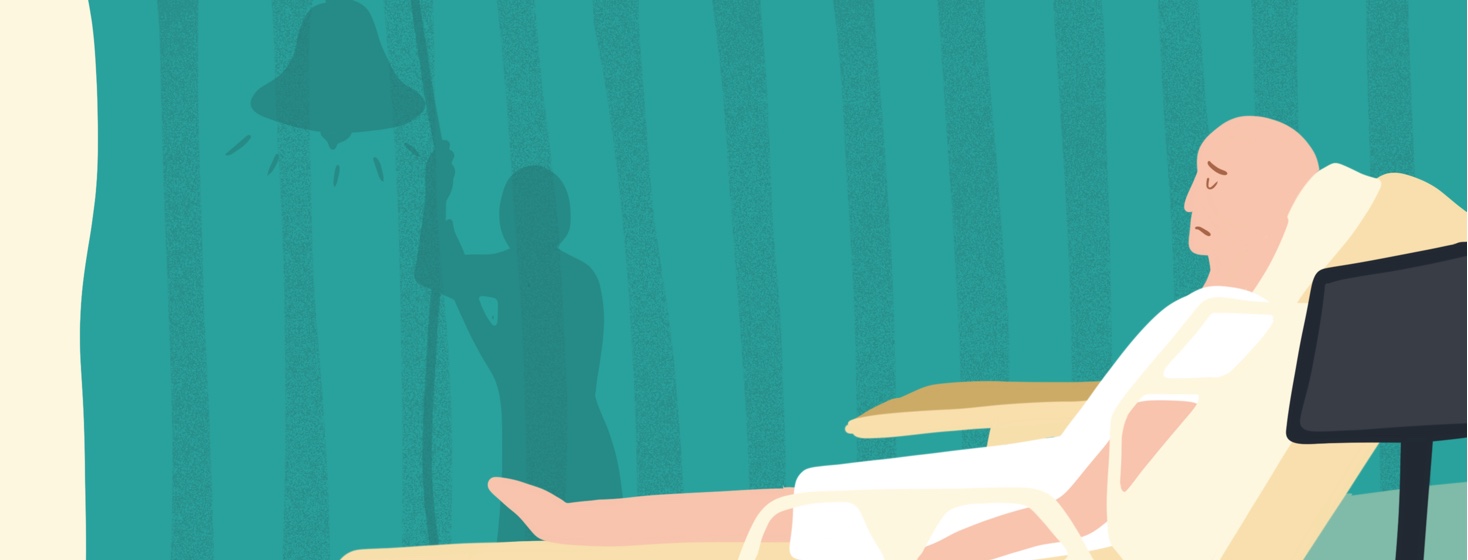A Nurse’s Perspective on Ringing the Chemo Bell
I remember when the "chemo bell” was donated to the treatment room where I am an infusion nurse. The local news came and filmed a segment in our treatment room and highlighted the significance of having a bell available to ring when patients complete their treatment. For those who may not be familiar with the ringing of the bell, its purpose and significance are hope, completion, and a sense of security. Again, I would like to reiterate, completion.
Different journeys in a shared space
I have been an oncology nurse for over 11 years. Cancer is all I know in the nursing world, and I wouldn’t have it any other way. I have patients come visit me in the treatment room who are 2, 3, 7 years out and then I have patients who I console, support, and care for after they have been told they have weeks to live.
The fact of the matter is that our 25-chair treatment room is filled with all stages, diagnoses, and ages. A stage 4 cancer patient can look and act the exact same way as a stage 1 cancer patient. However, I’ll tell you that one of those two cancer patients has constant heartache and the unfair reality that their cancer is incurable. This patient will never be able to ring the bell but instead will hear the bell rung by his neighboring cancer buddy time and time again.
The day the bell rang too loudly
I will always remember the moment when I realized that the bell’s benefit does not outweigh the discomfort we can impose on our patients and their families.
It was New Year's Eve, and a physician who I work with came down to talk to me. He told me that he was going to be sending down a 42-year-old patient with stage 4 colon cancer. Before I could question him as to how we could treat this man who appeared very sick he reminded me of this patient’s age, his fight, and his determination to spend as much time as he can with his wife and 8-year-old son.
This physician, patient, and wife had just made the most difficult decision to try this treatment, knowing that this might be the last chance. It took me seconds after meeting this young couple to understand why this physician agreed to proceed with treatment. We decided to put the patient in our one bed where we could pull a curtain, allowing for more comfort and privacy.
As his treatment was underway, I had another younger female patient who was completing her breast cancer treatment and shared with staff and her neighboring cancer buddies how EXCITED she was to ring the bell. She continued to cheer while walking down the hallway, passing the bed towards the bell. I felt as if she rang the bell for 20 minutes. I couldn’t help but cringe inside at the thought of what kind of emotion and sadness my patient and his wife might be feeling behind the curtain.
A nurse's conflict: Celebration vs. compassion
I’m a cheerful, high-energy, life-loving person. I’m a cheerleader at heart – cheering my patients on and celebrating with them as certain milestones approach. At first, I saw the bell as a special way to help celebrate with those that could ring it. However, I think it’s important to realize that not everybody gets to ring it and to understand a one-size-fits-all approach that may be helpful to one, may be causing more grief to another.
Rethinking how we celebrate milestones
I do feel that the transition from active treatment to completion should be celebrated. I can personally say that I was able to participate in a celebration when my sister completed treatment for stage 3 triple-negative breast cancer. However, I suggest that we create options for patients that do not intrude on the comfort of others.
What is your experience with the chemo bell?

Join the conversation